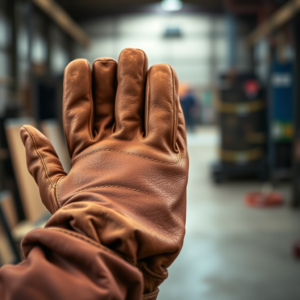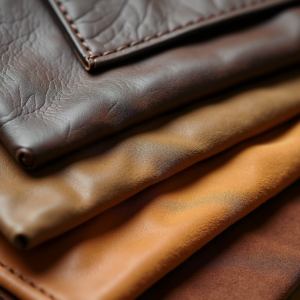
Protecting hands is necessary in businesses where employees regularly handle dangerous substances. Strict safety precautions are required due to the possibility of chemical burns, skin irritation, and even systemic poisoning. Although many types of gloves are resistant to chemicals, leather gloves can give a useful layer of protection in some situations if they are chosen and treated properly.
It’s important to understand that not all leathers are resistant to chemicals. When left untreated, natural leather can absorb some substances and may retain them on the skin. Specialized treatments are therefore necessary to improve its defensive qualities. Leather can, however, provide a good defence against certain chemical exposures when it is subjected to such procedures. Especially in heavier grades, the material serves as a barrier to prevent splashes and contact with specific chemical solutions. To improve leather gloves’ resilience, manufacturers use specialized coatings and treatments that form a barrier that prevents or deters the passage of particular substances.
In addition to the possibility of chemical exposure, durability and endurance are important considerations in settings where gloves may come into touch with sharp items or abrasive surfaces. Because leather is naturally durable, the gloves can continue to protect for long periods. Choosing leather gloves that are compatible with the particular chemicals being handled is crucial. Not every leather glove can withstand every chemical. To make sure the gloves are appropriate for the intended application, always consult the safety information and instructions provided by the manufacturer. As a reliable leather glove manufacturer in India, we give customers access to goods that satisfy essential safety standards if they’re searching to get dependable hand protection in large quantities.
Maintaining the protective qualities of leather gloves also requires adequate upkeep and care. Frequent examination and cleaning are essential. It is important to follow approved safety procedures while cleaning or discarding contaminated gloves. It’s crucial to recognize leather gloves’ limitations, though. They might not be appropriate for handling extremely caustic materials or for extended exposure to chemicals. Gloves composed of synthetic materials, such as nitrile or neoprene, may provide better protection in certain situations. Workers can greatly reduce their risk of chemical exposure by choosing the appropriate gloves for the job and knowing the science underlying leather’s protective qualities.









